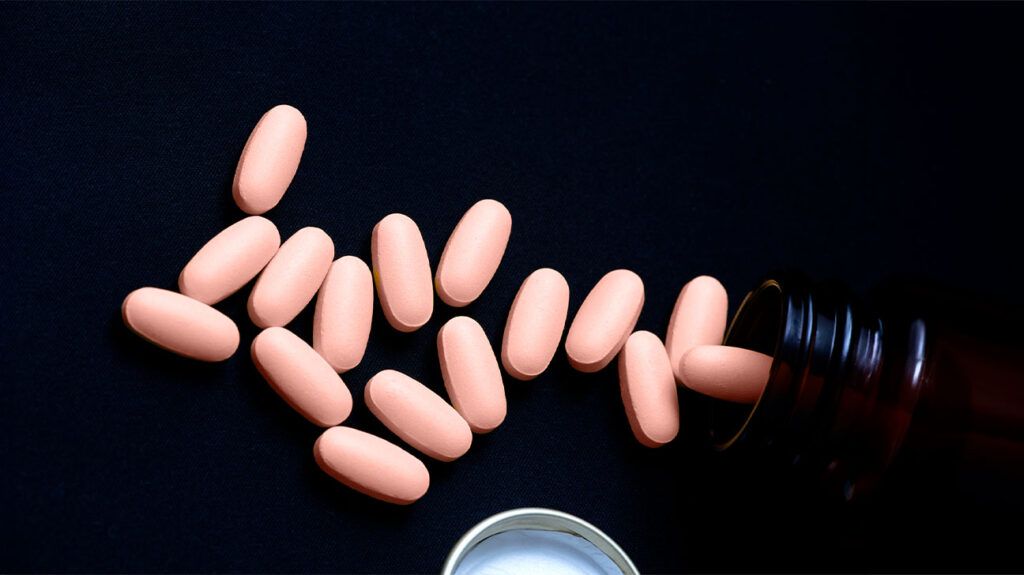
- A new study from the University of Hong Kong found that statins effectively lowered all-cause and cardiovascular deaths among older adults.
- Statins control the production of “bad” cholesterol, reducing the overall amount of circulating cholesterol in the body — although they do not affect dietary cholesterol.
- Cholesterol is linked to atherosclerosis, a leading risk factor for heart disease.
Statins are medications that reduce LDL cholesterol levels, otherwise known as “bad” cholesterol.
LDL cholesterol may lead to deposited plaques in blood vessels, hardening and narrowing them and reducing healthy blood flow. It is a contributing factor to atherosclerosis and heart disease.
Research on treating and preventing other heart disease-related conditions with statins is ongoing.
Now, a new study from researchers at the University of Hong Kong found that statins may lower the risk of all-cause and cardiovascular deaths among older people.
The findings show a decrease in mortality among people 60 years of age and older — including people over the age of 85 — who took statins.
The study is published in Annals of Internal Medicine.
According to the
Recent estimates show that in 2019, the heart disease-related mortality rate among people ages 60 to 80 was 77–80%, and 85% for people over 80. For people ages 40 to 60, 35–40% died of heart-related disease.
To find out whether statin use could help lower death risk from heart disease among older adults in these age groups, the authors of the new study analyzed electronic medical records at the Hong Kong Hospital Authority. The individuals included in the analysis had not previously used statins or lipid-lowering drugs and had no history of cancer.
Researchers tracked specific statin drugs and outcomes. The people were treated at the hospital from January 2008 to December 2015. Where possible, individuals were followed until death or until the study concluded.
People were excluded from the study who had been diagnosed with myopathy and liver issues. There have been reports linking statins to these problems, though experts say these adverse effects are highly unlikely for most statin users.
The new study supports this conclusion, finding no link between statins, myopathy, muscle pain, or liver dysfunction, another possible adverse effect of the drugs.
The reduction in all-cause deaths is likely due to statin use and prevention of cardiovascular events, which comprise a high percentage of all deaths.
Cheng-Han Chen, MD, of Saddleback Medical Center, CA, not involved in the study, explained that cholesterol in the body comes from two sources.
“Some of it comes from the food we eat, but a lot of it is made by the liver,” Chen told Medical News Today.
Chemically, statins “inhibit an enzyme called HMG0CoA reductase. This enzyme is critical for cholesterol synthesis in the liver,” said Jayne Morgan, MD, cardiologist and the executive director of Health and Community Education at the Piedmont Healthcare Corporation in Atlanta, GA. Morgan was likewise not involved in the study.
Chen explained statins work by decreasing the amount of cholesterol made by the liver.
“By doing that, it decreases your total circulating blood cholesterol levels,” he said. Statins do not affect dietary cholesterol.
As such, statins, such as Lipitor, Zocor, and Crestor, help people avoid cardiovascular disease.
Heart disease is an umbrella term for several conditions that result from a partially or totally impeded blood flow to the heart or brain:
- Heart attack (myocardial infarction)— blood supply to the heart becomes blocked
- Stroke — the brain’s blood supply is blocked
- Angina (chest pain) — insufficient blood flow to the heart that produces chest pain
- Coronary heart disease — when blood flow to the heart is restricted
Chen noted an additional benefit of statins is they “directly stabilize the plaques so that they’re less prone to rupture, a cause of sudden heart attacks in people.”
Morgan added that statins are “further thought to decrease the risk of heart disease by a modest effect on increasing the HDL [cholesterol] and decreasing inflammation.”
Chen said the new study adds to a body of evidence supporting the value of statins. “Many large-scale studies have demonstrated a benefit for statins in all-cause mortality,” he said, noting cardiovascular deaths in particular.
Morgan told MNT that statins may be prescribed to adults at risk for heart disease starting around 18 years of age, especially among people with a history of familial hypercholesterolemia or dyslipidemias (high LDL cholesterol) or other genetic lipid disorders.
“Primary prevention may be considered in those without heart disease but with risk factors such as family history, hypertension, diabetes, smoking, and elevated cholesterol. This helps to mitigate the risk of fatal cardiovascular events,” Morgan said.
“Secondary prevention may be considered for those who have already suffered a heart attack in mitigating the risk of further cardiac events in this-high risk population,” she noted.
Some statin users report muscle cramps or weakness after using statins and may be reluctant to take them or may stop taking the medications. These symptoms are called Statin-Associated Muscle Symptoms or “SAMS.”
One
The American College of Cardiology reports that the occurrence of SAMS tends to be low in randomized controlled trials, although higher in observation studies.
According to the National Lipid Association (NLA), the actual incidence of SAMS is about 10%. The NLA holds that while such symptoms may be actual, they are likely not caused by statin use.
“Occasionally, patients will mention muscle discomfort,” Dr. Chen said. “If we ever see any of these adverse effects, we would try switching the patient to a different statin and to see if that helps [resolves] symptoms.”
